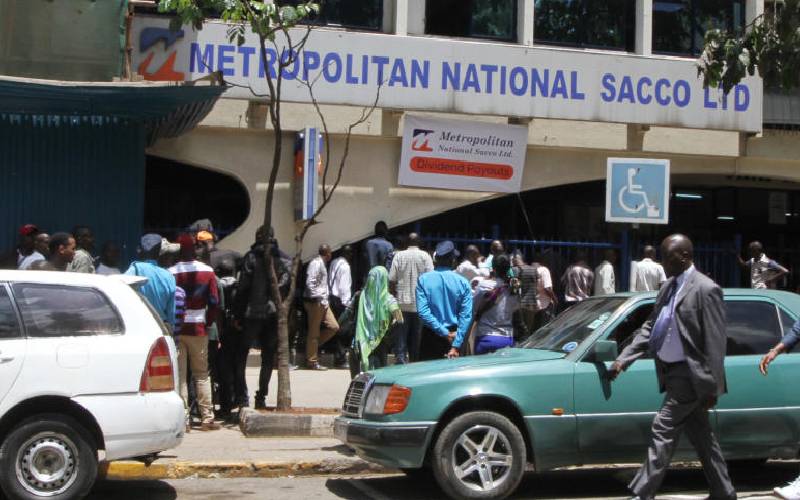Savings and Credit Cooperative Organizations (SACCOs) are integral to Kenya’s financial sector, providing millions of members with access to affordable credit and savings products. However, like any financial institution, SACCOs can be susceptible to mismanagement, which can jeopardize members’ savings and the overall stability of the organization. For SACCO members, it’s crucial to know how to identify signs of mismanagement and the steps to take to report it effectively. This guide offers a comprehensive overview of how Kenyan SACCO members can address concerns about mismanagement.
Understanding SACCO Mismanagement
Mismanagement in a SACCO can take various forms, ranging from poor financial oversight and fraudulent activities to breaches of governance and unethical practices by board members or management. Common signs of mismanagement include unexplained financial losses, delays in processing withdrawals, lack of transparency in decision-making, failure to hold regular meetings, and the absence of audited financial statements. Recognizing these red flags is the first step in protecting your interests and those of other members.
Gathering Evidence
Before taking any action, it’s important to gather concrete evidence of mismanagement. This may include financial statements, meeting minutes, communication records, and any other documents that support your concerns. If possible, try to collect testimonies from other members who share your observations. Having substantial evidence strengthens your case and makes it easier for regulatory bodies to take action.
Reporting to the SACCO’s Internal Structures
Most SACCOs have internal mechanisms for addressing grievances and concerns. These typically include the SACCO’s supervisory committee, which is tasked with overseeing the management and ensuring that members’ interests are protected. If you suspect mismanagement, start by raising the issue with the supervisory committee. You can do this by writing a formal complaint letter detailing your concerns and providing the evidence you have gathered. It’s essential to keep a record of all correspondence for future reference.
Escalating the Issue to the General Meeting
If the supervisory committee fails to address your concerns satisfactorily, or if the mismanagement involves the committee itself, the next step is to escalate the issue to the SACCO’s general meeting. The general meeting, which includes all members, is the highest decision-making body within a SACCO. You can request that the matter be included in the agenda for the next general meeting, where members can discuss the issue and vote on possible actions. This approach is particularly effective if you can garner support from other members.
Involving the SACCO Regulatory Authorities
If internal structures do not resolve the issue, it’s time to involve external regulatory bodies. In Kenya, SACCOs are regulated by the Sacco Societies Regulatory Authority (SASRA) and the Commissioner for Cooperative Development. SASRA oversees deposit-taking SACCOs, ensuring they comply with legal and regulatory requirements. To report mismanagement, you can file a complaint with SASRA by providing detailed information about your concerns, including any evidence you have gathered. SASRA has the authority to investigate SACCOs and take disciplinary actions if necessary.
Legal Recourse
In cases where mismanagement has led to significant financial losses or legal breaches, you may need to seek legal recourse. This can involve filing a lawsuit against the SACCO or its management for breach of fiduciary duty, fraud, or other misconduct. Engaging a lawyer with experience in cooperative law can help you navigate the legal process and determine the best course of action. Legal action should generally be considered as a last resort after exhausting other avenues.
Protecting Yourself and Other Members
When reporting mismanagement, it’s important to protect yourself from potential backlash or retaliation, especially if the individuals involved hold significant power within the SACCO. Consider collaborating with other members to present a united front, which can reduce the likelihood of personal attacks. Additionally, familiarize yourself with whistleblower protection laws in Kenya, which are designed to protect individuals who report misconduct from retaliation.
The Role of Auditors and External Audits
External audits play a crucial role in detecting and preventing mismanagement within SACCOs. SACCOs are required by law to undergo regular audits by independent auditors who review their financial statements and overall operations. If you suspect mismanagement, you can request that an external audit be conducted. The findings of the audit can provide clear evidence of any irregularities and strengthen your case when reporting to regulatory authorities.
The Importance of Transparency and Accountability
Transparency and accountability are key pillars of good governance in SACCOs. As a member, it’s important to advocate for these principles within your SACCO. This includes insisting on regular financial reporting, demanding transparency in decision-making processes, and holding management accountable for their actions. By fostering a culture of accountability, members can help prevent mismanagement and ensure the long-term success of the SACCO.
Conclusion
Reporting mismanagement in a SACCO is a serious responsibility that requires careful consideration, evidence gathering, and a clear understanding of the appropriate channels. By following the steps outlined in this guide, Kenyan SACCO members can take proactive measures to address concerns about mismanagement, protect their investments, and uphold the integrity of the cooperative. Remember that your voice as a member matters, and taking action can make a significant difference in ensuring the effective and ethical management of your SACCO.





